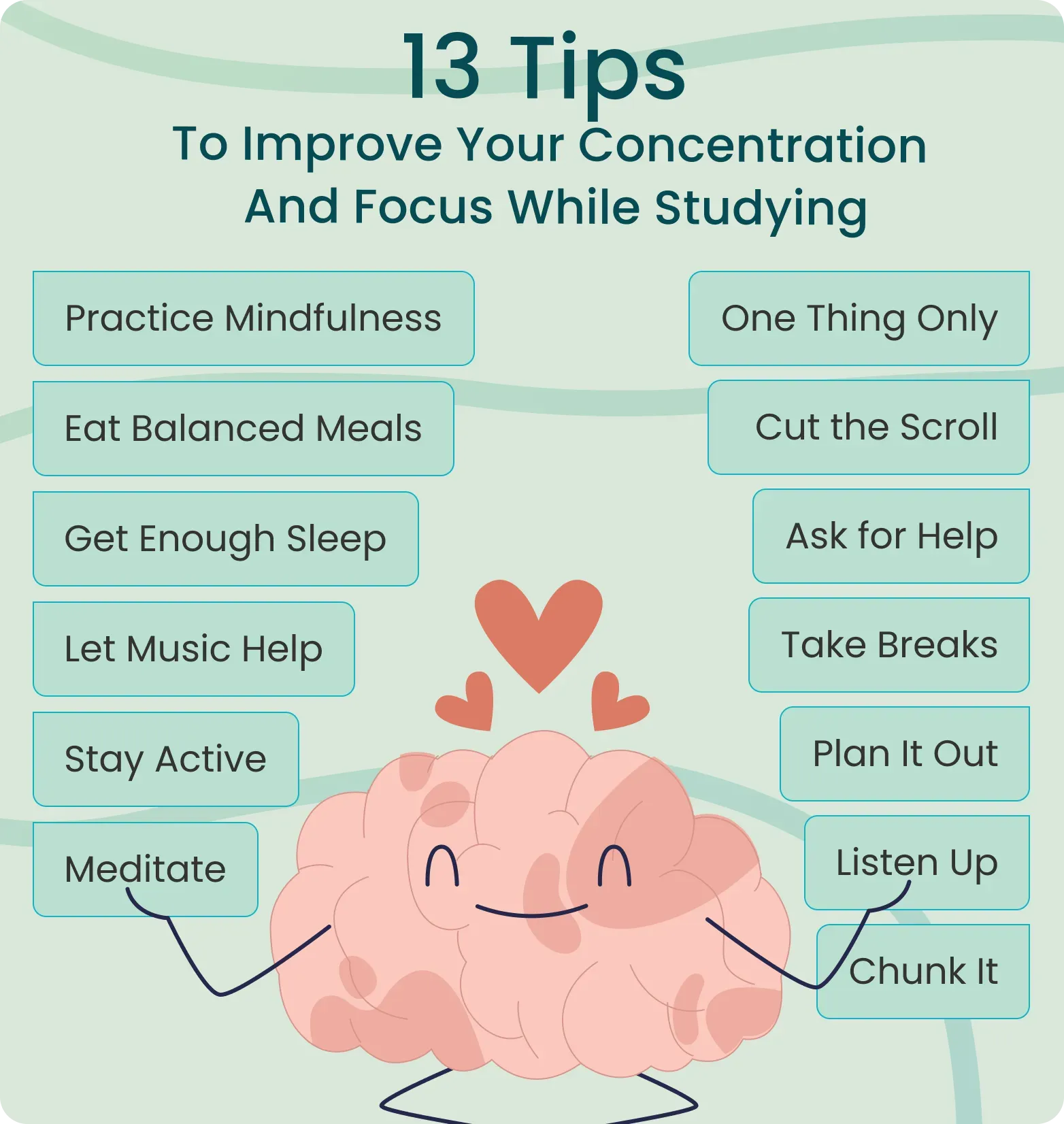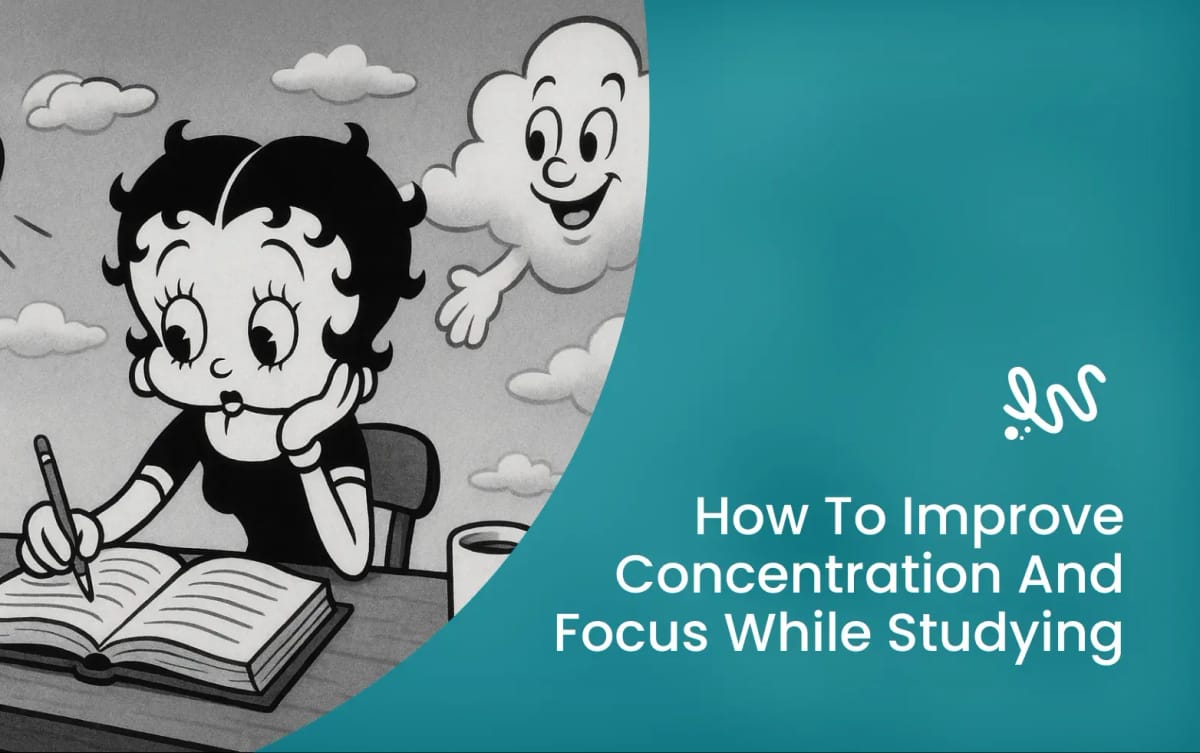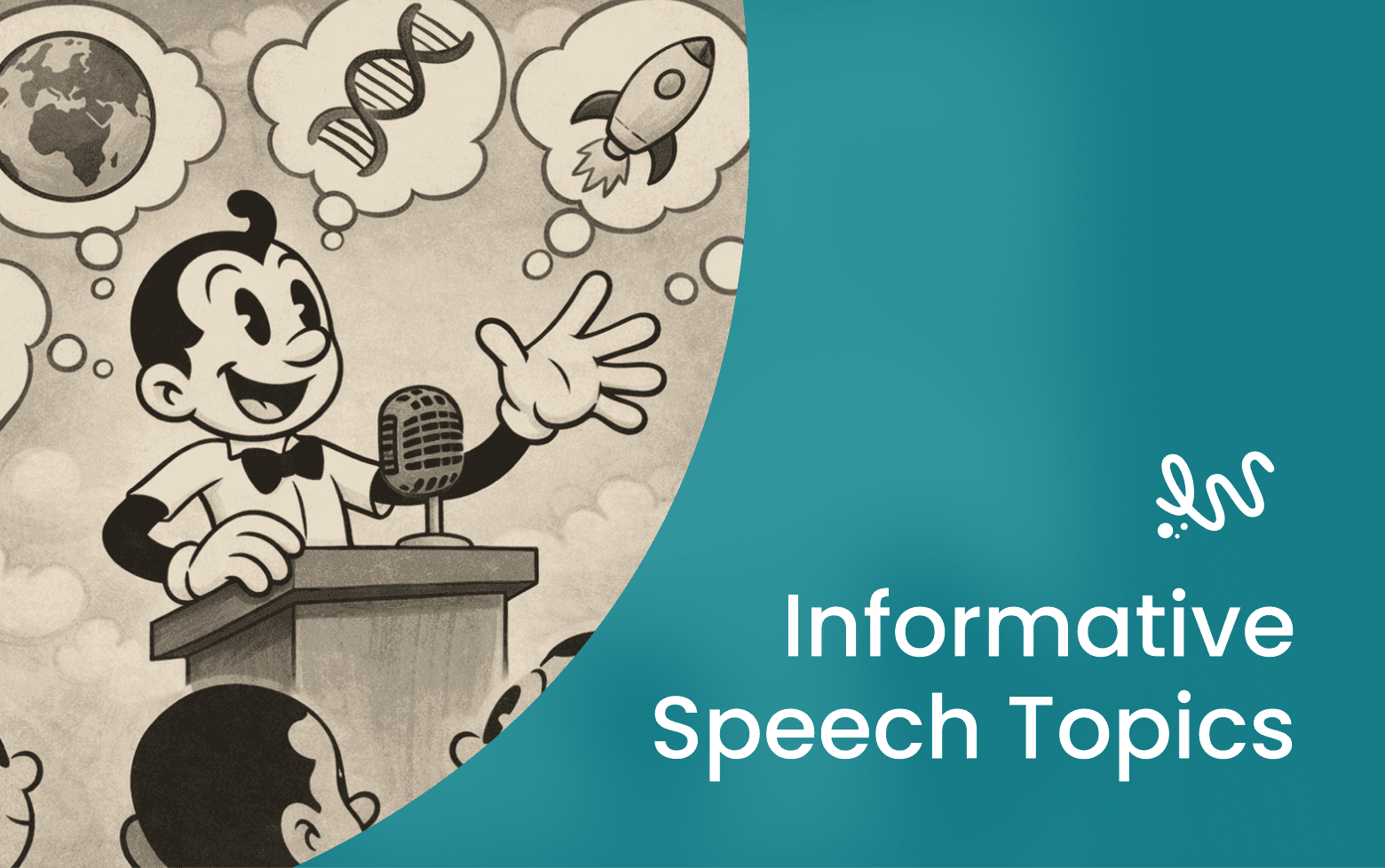Learning how to increase focus and concentration while studying starts with building the right habits for your brain to stay on track. This article will help you create a plan to study smarter.
Here are a few of the most important tips to stay focused while studying:
- Set clear goals before you start.
- Take short breaks.
- Eliminate distractions.
- Create a clean and comfortable study space.
- Stick to one task at a time.
- Get enough rest.
If no amount of planning and caffeine can get you unstuck, WriteMyEssay is always here to help. It's a trusted place where students can get expert writing help from professionals in their respective fields - perfect for those days when studying just isn't going your way.
Things Getting Too Messy To Handle?

13 Tips to Improve Your Concentration and Focus While Studying
Focus doesn't improve overnight. It's something you build over time with small but consistent habits that work for you. These habits are not universal, either; what helps one student power through a tough study session might distract another to the point of no return. The point is figuring out what keeps you, in particular, in the zone. You'll definitely find something useful in the 13 practical tips we'll talk about below.

Before we dig below the surface, here are a couple of quick tips for maintaining focus:
- Use short focus timers
- Change your study spot
- Study in natural light
- Turn off phone notifications
Get Enough Sleep
Quality sleep is non-negotiable. Even if you manage to get through several days with three hours of sleep and four cups of coffee a day, tiredness will still catch up with you at some point. According to CDC, people between the ages of 18-60 need 7-9 hours of sleep per night on a regular basis. So, if you find it impossible to maintain focus, your brain might just need a break. Aim for seven to nine hours a night, and you'll see how much better your head will start working.
Stay Active
Your brain loves physical activity. Sitting still for hours on end will eventually turn your study sessions into snooze fests. Hitting the gym isn't the only way to be active. You can just take a quick walk or even dance around your room to your favorite focus. The main thing is to move around to get the blood flowing and let your mind stay sharp.
Eat Balanced Meals
Food is fuel. Real food, though, not chips and energy drinks. You shouldn't expect your brain to perform miracles anytime soon if your calorie intake is close to zero. Eating balanced, nutrient-dense meals is what helps you improve cognitive function. Aside from protein and vegetables, you can rely on brain-friendly snacks like nuts or fruit. Your brain will thank you.
Meditate
Meditation practices aren't only for those with lots of free time and their lives perfectly together. Meditation is one of the simplest tricks for clearing your mind, which helps you improve focus. Close your eyes. Breath in. Breath out. Repeat. Even five minutes of calmness will help you quiet the mental chaos and make it easier to focus on studying.
Practice Mindfulness
Mindfulness means paying full attention to whatever you're doing at the moment. It's like attention training for your brain, which sounds simple and obvious until you realize your brain is already thinking about bedtime right as you're reading this sentence. Mindfulness practices build great concentration skills. Start small: focus on your breath, try doing one thing at a time, or simply notice when your mind starts to wander. Headspace and similar mindfulness-focused apps can help you get started with guided sessions that help you feel present without overthinking it. But you need to
be consistent with them. Baby steps are still steps.
Let Music Help
Music can save your study session or completely ruin it, depending on what playlist you choose. The right music will block out distractions and help you actually get stuff done. You should stick to instrumentals, lo-fi beats, or even ambient sounds. Even some natural sounds can work as background music. Crush your to-do list, and then you can move on to your favorite sing-along tracks.
Take Breaks
No matter how much caffeine you throw at your body to fuel it, it's still not a machine that can power through for hours without a break. That's not productivity; the lack of regular breaks means that you're probably half-reading the same sentence over and over (in vain, most of the time). The best route to take is short work sprints with quick breaks in between - the Pomodoro Technique is great for it, actually. Set a timer, focus as hard as you can for 25 minutes, and then step away from the table for 5.
Listen Up
Tuning in takes more effort than you might expect, but once you realize that it's kind of a superpower when it comes to building concentration skills, it becomes well worth the headache. Really listen whenever you're in class or watching a lecture. It's not just the "nodding your head but secretly dreaming about going home" kind, but rather the kind where you jot notes and actually catch the main ideas before they float away.
Plan It Out
"Let's see where it goes" is an excellent mindset when you're trying to have a fun weekend, not so much when you have three assignments to submit by tomorrow. You can put everything swirling into your brain in a planner, no matter if it's paper or digital. That way, you can stop using your brainpower to remember deadlines and shift your focus to actually getting things done. Tools like Todoist can help you clear the mental clutter by allowing you to organize all your tasks in a single, neat place.
Chunk It
It's hard to keep a focused mind when you're dealing with a huge task. Big assignments with complex tasks are overwhelming; that's just facts. But if you break them down into smaller, more manageable chunks, you'll see the magic happen right before your eyes: suddenly, everything becomes easily doable! Instead of stressing over writing 4,000 words for the entire paper, take it one paragraph at a time.
One Thing Only
No matter how productive multitasking feels, and regardless of how much you think you're killing it, it's still basically focus sabotage. Your brain quickly becomes tired and confused when you're jumping between tabs and tasks. Plus, let's be honest with ourselves: nothing really gets done this way. The fix is easy: just single-task and dedicate your full attention to the thing right in front of you. When you study, just study. When you're eating, don't distract yourself with YouTube videos.
Cut the Scroll
Social media is great. It can even be a super effective tool for research if you use it right. Until... you pick your phone up for a quick scroll during a break and suddenly find yourself 87 TikToks deep, stalking a friend's dog's birthday party. Sounds familiar? Don’t worry; it happens to more students than you might think. 66% of students admit they feel more tempted to check their feed than focus on schoolwork. Even more concerning is that 52% say social media has already affected their learning activities.
If you're serious about maintaining focus, you need to seriously cut down the time you spend staring at the screen. Set app timers, block distracting websites, or keep your phone out of your reach altogether. Your feed can wait. Your assignments won't.
Ask for Help
Struggling with the ability to concentrate isn't always about distractions or laziness. Stress, academic burnout, and various mental health issues can make studying feel like dragging yourself through quicksand. In fact, about 37% of U.S. college students have been treated for stress at some point, which means that this issue is more serious than a few sleepless nights.
It's okay to reach out for help when you need it; there's absolutely no shame in it. Talk to a friend or a counselor, maybe even schedule a therapy session or two to really get back on your feet. Your mental health is one of the foundations of a clear head: when your mind feels better, focusing becomes a lot easier.
What Messes With Your Concentration While Studying?
Sometimes, trouble concentrating isn't a problem with how you study but rather about the sneaky things and bad habits that get in the way. Focus doesn't simply disappear for no reason; these seemingly tiny details catch up without you noticing and work to pull your brain in every direction except where it actually needs to go.
Here are some of the biggest things that can wreck your concentration while studying:
- Running on zero sleep
- Scrolling every five seconds
- Living on vending machine snacks
- Too much stress
- Doing five things at once
- No study plan
Before You Hit The Books
Here's the main thing you need to know about maintaining focus while studying: it's not luck. Nor is it magic. It's also definitely not always easy. It's consistent daily habits and a little bit of strategy to help yourself avoid whatever keeps stealing your brainpower.
Let's go over our study survival guide once again:
- Get a good night's sleep.
- Eat well.
- Move around.
- Meditate and practice mindfulness.
- Use tools like planners, timers, and helpful apps
- Cut distractions
- Take frequent breaks
There comes a time when no noise-canceling headphones and smart planning apps can help you sit down and actually get started on your tasks. If you find yourself thinking, 'Please, can someone write my essay so I can survive this week?' WriteMyEssay's professional writers can. You don't have to be shy about asking for help, especially when it's from reliable experts who can help you stay on top of your deadlines without losing your sanity.
FAQ
How Do I Increase My Concentration and Focus on My Studies?
Start with the most important things: get sleep, eat balanced meals, and create a distraction-free study space. Once you set everything up, break big tasks into smaller steps; trust us, you'll instantly feel less overwhelmed. Digital tools like timers or planners are great for staying on track once you start studying. And don't forget to take regular breaks!
How Do You Get 100% Concentration and Focus?
Focus on building useful habits like single-tasking and mindfulness, and put your phone away. Stay consistent with these smart habits, and you'll notice your concentration improving over time.
How Do I Fix My Lack of Focus?
Get to the root of the problem and figure out what's messing with your focus in the first place. Once you know the problem, address it and fix your environment accordingly. Get rest, study in a quiet space, and fuel your body with real food.
Sources
Harvard Health. (2020, October 1). Tips to improve concentration. Harvard Health. https://www.health.harvard.edu/mind-and-mood/tips-to-improve-concentration
Raypole, C. (2019, September 3). 12 Tips to Improve Your Concentration. Healthline; Healthline Media. https://www.healthline.com/health/mental-health/how-to-improve-concentration
Hamilton, C. (2024, October 18). Pay attention! 12 ways to improve your focus and concentration span. The Guardian; The Guardian. https://www.theguardian.com/lifeandstyle/2024/oct/18/improve-focus-concentration-span-expert-tips
Bouchrika, I. (2020, October 26). 50 Current Student Stress Statistics: 2020/2021 Data, Analysis & Predictions. https://research.com/education/student-stress-statistics#3
Watson, N. F., & Badr, M. S. (2015). Recommended Amount of Sleep for a Healthy Adult: A Joint Consensus Statement of the American Academy of Sleep Medicine and Sleep Research Society. Sleep, 38(6), 843–844. https://academic.oup.com/sleep/article-abstract/38/6/843/2416939
Kolhar, M., Kazi, R. N. A., & Alameen, A. (2021). Effect of social media use on learning, social interactions, and sleep duration among university students. Saudi Journal of Biological Sciences, 28(4), 2216–2222. https://www.sciencedirect.com/science/article/pii/S1319562X21000103?via%3Dihub



